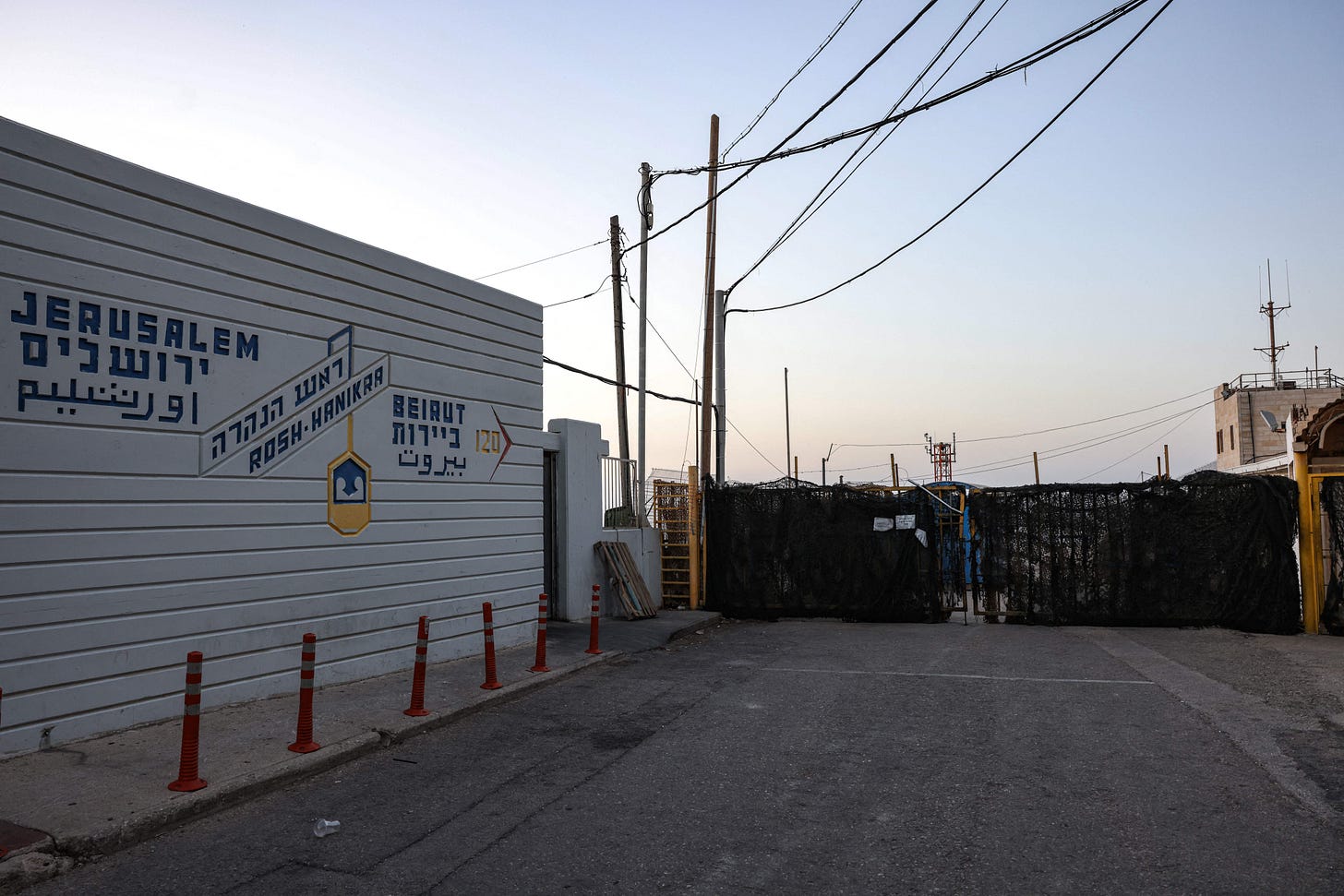TL(PM) DIGEST: Uneven optimism on the economy peaks through the gloom
Plus why we shouldn't fear Putin's empty nuclear threats, a decades-long sex abuse scandal in the Archdiocese of Baltimore, and yet more tension in the Middle East

1. Think things are looking up on the economy? Not so fast
What happened? A new Investor’s Business Daily/TIPP poll shows some economic optimism rising among Americans:
The overall IBD/TIPP U.S. Economic Optimism Index rose a half-point to 47.4 in April. That puts the index at its highest level since December 2021. Still, the index remained in pessimistic territory, below the 50 neutral level, for a 20th straight month.
Now 55 percent of adults polled think the U.S. economy is in a recession, up from 53 percent the prior two months. However, that figure reached 61 percent in October.
Why does it matter? Optimism is better than pessimism, but leaders need to recognize that rosy views of the economy are not uniform—even though the United States may not technically be in a recession. Investors, for example, report much higher levels of optimism than non-investors in the IBD/TIPP poll. Continued worries about inflation dampen views among others, however, with only 28 percent of workers in this poll saying that their wages have kept pace with rising prices.
TLP’s take: With all the political distractions around Trump’s indictment and other culture war campaigns, the health of the overall economy and the economic stability of working families, especially their ability to handle stubbornly persistent inflation, remain the most important issues to normal Americans. Political leaders should keep this mind—because their voters certainly will.
2. Don’t get rolled by Putin’s nuclear bluster
What happened? In a new research paper, Chatham House Russia scholar Keir Giles argues that the Kremlin routinely resorts to nuclear threats because its “long-running campaign of nuclear intimidation continues to deliver results in terms of deterring Western responses to Russian aggression, and shielding Russia from the consequences of its actions in Ukraine.” But Russia’s own nuclear doctrine—“what the Russian armed forces themselves think nuclear weapons can be used for, or indeed be useful for”—makes clear these threats don’t have a basis in the country’s actual military strategy.
Why does it matter? The United States and its NATO allies tend to over-react to vague nuclear talk from Moscow and deter themselves from taking reasonable steps to counter the Kremlin’s aggression or support Ukraine as a result. Nuclear intimidation is a key rhetorical weapon in Putin’s diplomatic arsenal, one which many commentators in the United States and Europe lend far too much credence. But Putin’s nuclear bluffs are ultimately just that—bluffs that should not be seen as credible, much less ones that portend a third world war.
TLP’s take: As Giles writes, “a focus on Russian nuclear intimidation instead of on sober analysis of the actual likelihood of nuclear use has already contributed to substantial success for Russia in shaping the behaviour of the US and its Western allies.” Neither the United States nor its allies should let fear of vague nuclear threats lacking any inherent credibility deter them from standing up to the Kremlin or supporting Ukraine and its war effort.
3. Widespread abuse of children documented in the Archdiocese of Baltimore
What happened? The Maryland attorney general released a 463-page report detailing extensive sexual abuse of children by priests and coverups by the Catholic Church hierarchy in the Archdiocese of Baltimore over many decades. As the report says: “We hope to make public for the first time the enormous scope and scale of abuse and concealment perpetrated by the Archdiocese of Baltimore.”
Why does it matter? The Maryland report uncovered 33 previously unidentified perpetrators of abuse along with full documentation of all 156 clergy members who abused more than 600 children starting in the 1940s. Although state officials claim that they are not filing additional charges, a new law expected to be signed by Governor Wes Moore repeals the statute of limitations on sexual abuse cases in Maryland leaving open the possibility for future action.
TLP’s take: Apologies for this “horrific and repeated abuse” are of course in order—but more is required to repair the moral breach. The Archdiocese of Baltimore needs to atone for its corrupt actions over the past 80 years and provide full restitution to all remaining victims and their families, while the Church must prove to all remaining parishioners that it has changed its ways and implemented procedures to ensure these crimes never occur again within its jurisdiction.
4. If it’s not one thing in the Middle East, it’s another
What happened? Violence flared up again in and around Israel as the Christian, Jewish, and Muslim holidays of Easter, Passover, and Ramadan converged this week, with rocket barrages from Gaza and Lebanon following clashes between Israeli police and Palestinians at the al-Aqsa mosque compound in Jerusalem. These hostilities overshadow the Arab world’s rapprochement with the murderous Assad regime in Syria, which seems to be the primary achievement of the recent Beijing-brokered deal to restore relations between Saudi Arabia and Iran.
Why does it matter? While America’s and much of the world’s attention understandably remains focused on the war in Ukraine and tensions over Taiwan, the Middle East will not quietly fade into the background of global politics. As China’s recent, tentative foray into regional diplomacy and Russia’s ongoing influence in and around Syria show, it’s become an arena for wider global geopolitical competition as well as a region critical to the world’s economy and security.
TLP’s take: It's naive on the part of countries like Saudi Arabia, the United Arab Emirates, and Egypt to think that rebuilding ties with the Assad regime will prove a recipe for broader stability in the region. Steadier and more strategic U.S. engagement in the Middle East—and not exclusively on security questions—will be needed to keep the region from flaring up as America and its allies deal with even larger challenges in the Pacific and Europe.
Just one more thing…
How sugary Easter confection known as Marshmallow Peeps are made—some 5.5 million each day at a factory in Bethlehem, Pennsylvania.




